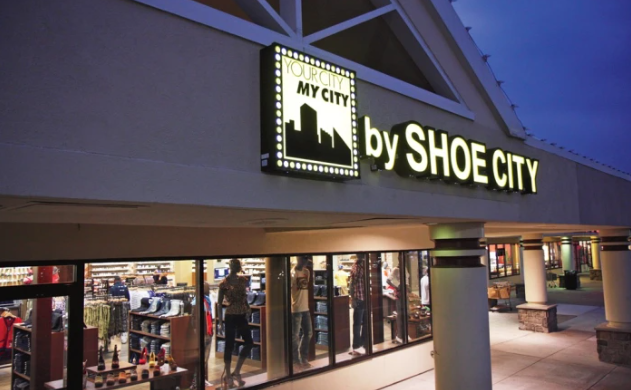Bankrupt Retailer Shoe City Is Closing After 74 Years, Owes Millions to New Balance, Puma & Timberland
Shoe City is going out of business.
The Baltimore-based sneaker and streetwear retailer, with the official business name of Esco Ltd., commenced going-out-of-business sales on Thursday for all of its 39 retail store locations throughout Maryland, Virginia and Washington, D.C. with the help of Gordon Brothers.
According to the advisory firm, the stores range in size from 2,000 to 9,900 square-feet and include street front, regional mall and strip center sites. The sales are expected to conclude by May 31, 2023.
This move comes after the retailer, which also did business as “Your City, My City” (YCMC), filed for Chapter 11 reorganization at the U.S. Bankruptcy Court in Maryland on March 31.

According to court documents, Esco Ltd. had an unpaid principal balance to a $12 million credit facility of $3.2 million as of March 28, 2023. The company also estimated in the filing that it owed $16 million in outstanding unsecured debt to vendors.
Shoe City’s largest unsecured creditors include New Balance, which the retailer owes $1.596 million; Timberland, which is due $1.407 million; and Puma, which is owed $1.351 million. The retailer also owes Nike $664,023, Under Armour $622,697, Adidas $360,630, Fila $199,897, Asics $137,351 and Reebok $134,457.
In the court documents, Stanley Mastil, senior director in Gavin/Solmonese, LLC, who has been appointed chief restructuring officer of Esco, wrote that there were “various factors” that have “severely impacted” the profitability of the business.
“Over the last several years, the debtor suffered declines in sales and increases losses in net income,” Mastil wrote in the filing. “The debtor incurred operating losses of approximately $280,000 and $1.76 million in fiscal years 2020 and 2021, respectively, which had a significant negative impact on the debtor’s financial position and liquidity.”
Mastil added that Shoe City took “a number of measures” in an attempt to address these issues including “shopping the company” as a going concern as well as seeking third party financing sources for replacement financing.
In May 2022, The Athlete’s Foot parent company, Arklyz Group, executed a deal to acquire Shoe City in an effort to expand on Arklyz’s North American presence. But the deal fell through and resulted in Shoe City’s ability to never regain profitability.
Starting in fiscal year 2020, certain vendors to Shoe City’s business began to change the allocation of goods, Mastil wrote. The retailer “failed to receive certain high-end goods and new sneaker releases at the levels from previous years that are critical to this industry,” stated Mastil.
In fiscal year 2022, comparable-store sales decreased by approximately $8.5 million from the prior years. During the current fiscal year, sales continued to decrease by almost $5 million through January 2023 compared to the prior fiscal year, placing increased pressure on Shoe City’s liquidity position “as none of the company’s efforts to improve its cash position came to fruition,” said Mastil.
